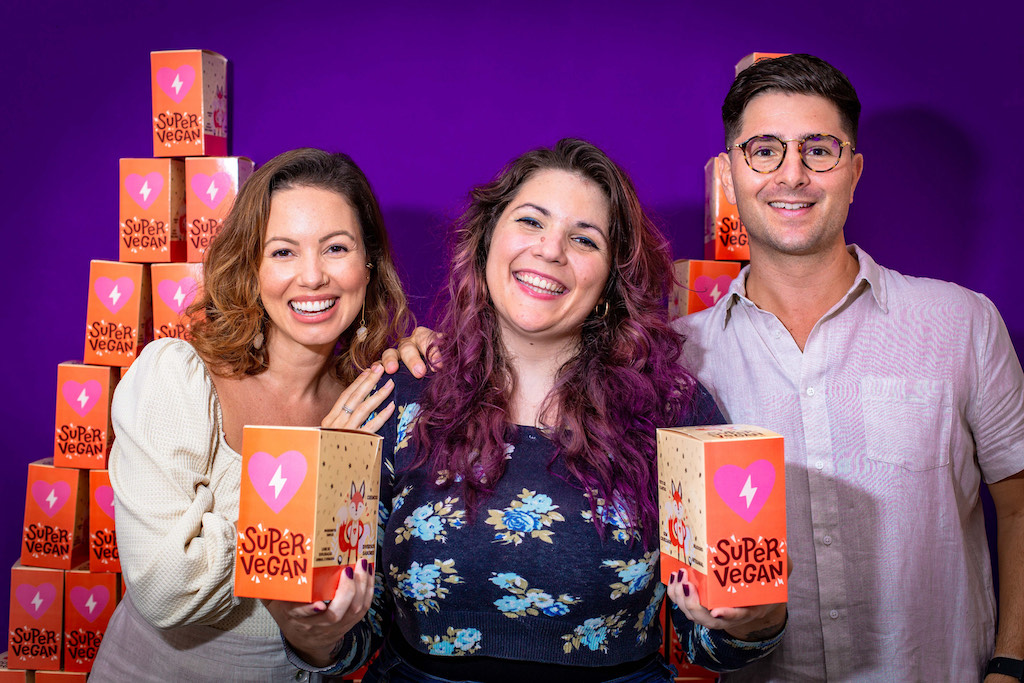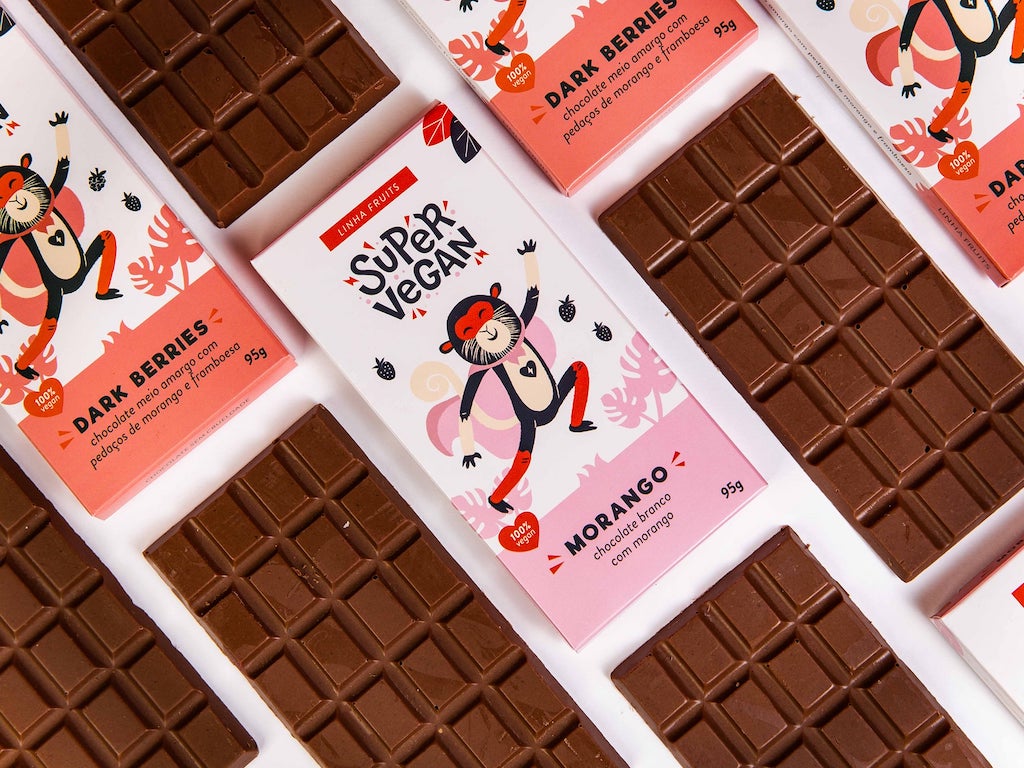3 Mins Read
Super Vegan, a Brazilian plant-based chocolate brand, has just caught the attention of vegan investors Veg Capital and Crica Wolthers. The female-founded brand is now expanding its equipment and capacity with an ambitious goal to grow its sales by 10-fold in 12 months.
Launched back in 2018, Super Vegan is a brand of vegan chocolates based in Brazil. A vegan since she was just 14 years old, Juliana Salgado Gaze started the brand when she struggled to find dairy-free white chocolate on the market.
Soon, she began making her own vegan chocolates, from her favourite white chocolate to milk and dark varieties too. It became a huge success with her community. Fast forward a few years, Super Vegan has attracted funding from Veg Capital, who has teamed up with São Paulo-based vegan entrepreneur and angel investor Crica Wolthers.

11 different chocolate flavours
Super Vegan boasts a line-up of 11 flavours in total, from Cookies and Cream to Vanilla and White Strawberry Chocolate. Ditching dairy milk, Gaze created her own formulations using plant-based substitutes like rice milk and coconut milk. Other plant-based ingredients used by the brand include nuts and natural flavourings like vanilla.
Focusing on milky and creamy flavours was no coincidence for Super Vegan, who hopes to disrupt Brazil’s sizeable milk and white chocolate market.According to Brazilian Association of the Chocolate Industry, these two types are the most popular chocolate varieties in the country.
“We aim to show that vegan chocolate can be just as tasty (if not more) than regular chocolate and better for the animals and the world,” says the brand.
Super Vegan is currently sold across Brazil in coffee shops, cafés, and through its e-commerce and its own direct-to-consumer website.

Vegan investment partnership
Seeing the growth potential of Super Vegan, Veg Capital partnered up with Crica Wolthers to back the brand. Veg Capital is a British venture capital firm created by Veganuary founder Matthew Glover, while Wolthers is a plant-based angel investor based in Santos, where Super Vegan is also headquartered.
“As a consumer and fan of the brand, I was lucky enough to invest in Super Vegan together with my wife in early 2020,” Wolthers told Green Queen Media. “My background is in tech, but since turning vegan in 2017 I’ve been investing in vegan businesses.”
In association with Veg Capital, Wolthers is now helping Gaze scale up her production and open her new facility in Santos.

“I was then fortunate to connect with Matthew and share more about my activities here in Brazil. Since the beginning of 2021, I’ve been advising for Veg Capital in Brazil and we have now done our first co-investment in Super Vegan.”
By 2022, we are looking to grow sales in Latin America and start exporting to Europe.
Crica Wolthers, Investor & Veg Capital LatAm Advisor
Increasing sales by 10-fold
“The mission is to scale production and sales by 10x over the next 12 months,” Wolthers says. At present, Super Vegan is producing around 750 kilograms every month. The target of growing 10-fold means that within a year’s time, the brand’s production will rise to 7,500 per month.
Super Vegan is also setting its sights on launching into new international markets in the months ahead.
“By 2022, we are looking to grow sales in Latin America and start exporting to Europe,” Wolthers told us.
All images courtesy of Super Vegan.




